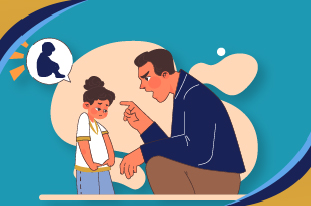Trauma is a very distressing state a person can ever experience. In layman words, it can also be described as compassion fatigue or the cost of caring. This simply means when a person also starts to relate with the trauma experienced people. Furthermore, such people also tend to develop a fear associated with that particular incident.
If you think you might know someone going through such feelings, then continue, reading this blog to attain basic understanding about what is vicarious traumatization, symptoms of vicarious trauma, examples of vicarious trauma, causes, and vicarious trauma treatment.
What Is Vicarious Trauma?
Vicarious trauma is a response that occurs due to the repeated exposure to a traumatic event that had been experienced by other people. Now, this might include witnessing, heading about, and supporting others during their trauma phase, regardless of the fact that the responder does not experience the trauma directly. However, the truth is that a person with an exposure to the trauma is at a high risk of developing vicarious trauma. But, the chances are higher if a person had a trauma history of their own.

Common Identifiers Of Vicarious Traumatization
The signs of vicarious community trauma are different for every person. Some people may experience the signs that are similar to the signs of PTSD i.e., the intrusive thoughts linked with the trauma, horrifying dreams and nightmares linked with events, and a persistent psychological distress. However, not every PTSD is vicarious trauma. Some may experience the below mentioned signs:
- Disturbed sleep cycle
- Unstable eating habits
- Panic Attacks
- Concentration Issues
- Depression
- MDD
- Specific Phobia
- Acute Stress
- SAD
- ADHD
- GAD
- Adjustment Disorder
- Psychosis
- Anxiety
- Illness
- Self-harm
- Substance Abuse
In terms of social relations, the person may also withdraw from their loved ones and sometimes exhibit irritable behavior towards them. In a few cases, such people may show signs of over protection and experience noticeable worry about the recurrence of the traumatic event.
Now the signs of vicarious trauma and compassion fatigue are different for different people. Therefore, some people may experience vicarious trauma at their workplace in the form of overworking and avoidance of professional responsibilities. Such people usually change their jobs. Moreover, they get into conflicts with their colleagues.
Read More: Understanding The Different Types Of Trauma
Leading Causes Of Vicarious Trauma
Vicarious trauma can occur in people who have been involved or kept in touch with trauma survivors and witness traumatic events repeatedly. For this very reason vicarious trauma is much more common in professional helping others, such as:
- Social workers
- Police officers
- Doctors
- Firefighters
- Paramedics
- Doctors
- Therapists
- Firefighters
Primary Instances Of Negative Reactions To Vicarious Trauma
As mentioned before, each individual experiences vicarious trauma differently. Therefore, the reaction may also vary from person to person. Some of the common negative reaction are:
- Unable to manage the emotions
- Experiencing sudden rush of emotions
- Emotional numbness
- Sleeping issues
- Lack of focus
- Persistent worry
- Aggressiveness
- Lack of understanding the meaning of life
- Physical pains
- Lack of interest in activities
- Avoidance of going to work and school
- Poor performance
- Interpersonal relationship issues
Read More: Understanding Trauma Bond Withdrawal Symptoms: Moving on to building healthy relationships
Ways To Reduce The Risk Of Vicarious Trauma
If you think that you or any of your loved one is experiencing vicarious trauma symptoms, you can follow the following coping strategies to minimize the risks:
- Awareness and identification about the vicarious trauma signs is essential. This will minimize the chances of burnout in the sufferer.
- Taking good care of yourself is essential. The best way to do so is to relax yourself with self soothing activities.
- Keeping a check on your physical and mental well-being is the key.
- Keeping a record of what to achieve and ensure attainable goals.
- Dividing your days as relaxing and working days.
Best Therapeutic Approaches For Vicarious Trauma
If you are a social worker and facing the signs of vicarious trauma, consulting with a therapist is essential and can be of great support. Some other ways to cope with the signs of vicarious trauma can be taking off from your work and going on a vacation to relax your mind. Moreover, seeking social support can be beneficial for several stressful situations. To connect with people you can always look up for individual and group therapy. This will aid in making you realize that you are not alone and there are several people going through the same. Other than these ways, you can always experience some proper treatment methods such as:
- Psychotherapy (Cognitive behavior therapy)
- Family therapy
- Trauma focused CBT for children and adolescents
Furthermore, you can always adapt some healthy habits such as keeping healthy boundaries, self care practices, self compassion practices, taking a break from work, attending training and educational sessions, and mindful grounding techniques.
Read More: The Hidden Mental Scars of Childhood Trauma in Adults
Wrapping Up!
Trauma is something that is experienced by every person in their life. Now there are certain types of trauma a person experiences. One of the widely experienced trauma is vicarious trauma. This is the type of trauma that is commonly experienced by certain people such as social workers, therapists, doctors, firefighters, and police officers as they on a daily basis get in contact with several people going through certain intensity trauma. Therefore, repeated exposure of these people with the trauma can lead them to experience the signs of vicarious trauma. Moreover, treating this trauma type is compulsory to prevent any adverse impact on the wellbeing of the sufferer with the help of psychotherapy, family therapy, and trauma focused therapy particularly for children and adolescents. If you think that you or your loved one is experiencing the signs of vicarious trauma and looking for how to prevent vicarious trauma, then now is the ideal time for you to get in touch with telehealth services of Orange Coast Psychiatry.


















